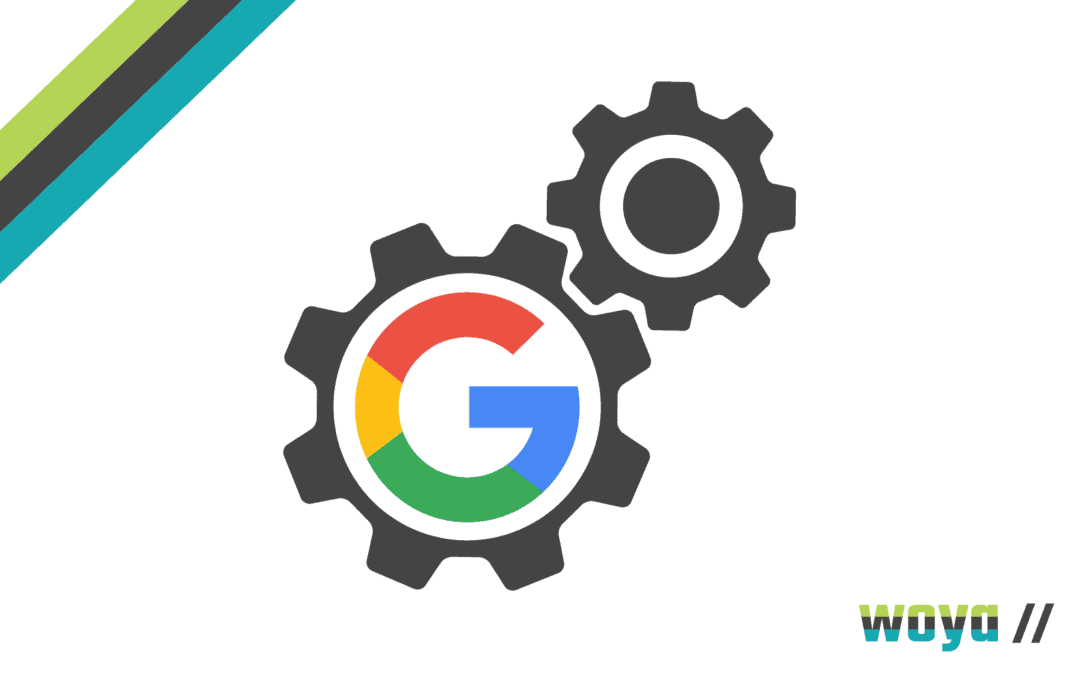Businesses worldwide are competing to rank highly on Google search and other search engines, and the internet is full of tips for ranking number one on SERPs (Search Engine Results Pages), SEO tips and tricks and ways to influence the Google search algorithm behind-the-scenes to do better without having to pay for traditional web advertising.
Indeed, much is said about the Google algorithm and how it works, but here we present the facts: in order to best help you strategise your SEO and plan it to benefit your digital presence.
What is the Google Search Algorithm?
The Google search algorithm is a complex system of programming and coding used to retrieve data from its search index which can then present the most appropriate search results for the search queries made by the search engine user.
Google’s ‘crawler’ bots index the internet and store the data on what it thinks each web page is about, what purpose it serves and who the appropriate audience for its content are. The Google algorithm then works through the index it has created to deliver web pages ranked by relevance on its SERPs. Google’s search algorithm prioritises and marks out relevant results it believes best suited to the user’s search intent to give them the answer, information or data they’re trying to find.
What is an Algorithm?
Algorithms are now referred to often as consumers better understand the internet and the presence they hold on it, and in many circles are seen as a mythical beast to be defeated in order to get more likes, gain more exposure, get more traffic, or be ranked above competitors in search query rankings.
While indeed it is true that only a very few senior coders at any tech company will know the exact details of a website’s algorithm and its calculations, much of what an algorithm follows can be worked on through common sense.
In general terms, an algorithm is a set of rules to be followed in calculations by a computer program. For example, the Google’s search algorithm is the program that calculates which webpages rank where for a specific user search query made. In the case of Instagram, the algorithm is the program that calculates which users are presented with which content. In the case of TikTok, the algorithm is the program that calculates what the user is interested in, and features videos related to this in their feed.
Every website or program that has a bespoke user ‘feed’ will have an algorithm operating behind it.
How Does Google’s Algorithm Work?
Google search algorithm works by referencing its search index and analyses the factors upon each page to determine its relevance for ranking. While we don’t know the exact weight that Google puts behind each of the many factors of a webpage, we do know what constitutes a priority for SEO purposes. This includes:
-
- The exact search terms of the query made on the search engine
- The domain age, authenticity and domain authority (DA)
- The usability of the website including its loading speed, accessibility functions and security
- The mobile responsiveness of the site’s performance and its ability to switch format to one appropriate to the device on which its being viewed
- The keywords and topics used throughout the content on the site, and if there is relevant content
- Other websites that link to the site and how trustworthy they are.
Considering all of these factors, the Google algorithm judges which website pages are most appropriate to be featured and in what order.
This means that the more concise, clear and usable a site is, the higher it will rank when a relevant search query is made.

What are Algorithm Updates?
Of course, as with all tech, the Google algorithm is constantly changing to improve the service it delivers. While there are a couple of major updates made every year which cause a considerable shift to the algorithm and its programming priorities, its estimated that smaller algorithm updates are made around once a week!
Where a major update does occur (referred to as a broad core algorithm update), Google announces this ahead of time and provides some basic details on it so that businesses are able to prepare and shift their online practices to meet the new ranking factor requirements.
Top Factors of the Google Algorithm
No one knows exactly what the exact formula is for Google top ranking factors, as this information remains confidential to all but a few senior execs within the company. However, we do know that the following ranking factors are amongst the most important:
-
- High-quality content
- A mobile-first experience
- Page experience
- Page loading speed
- On-page optimisation
- Internal links between pages
- External links to and from other relevant sites.
Historically focus has been laid just on the usage of keywords and search query phrases but since Google’s technology has developed and improved, many more factors are now included and considered. While there are businesses who do continue just to rely on the same keywords and keyword repetition throughout their content, this can no longer form a comprehensive and strategic SEO approach.
Realistically, it doesn’t matter exactly which ranking factor is the most important, as all should be focused on with equal priority in order to develop a well-rounded user experience (UX).
What is the Latest of the Google Algorithm Updates?
The most recent minor Google updates were both in September 2022. One was a core algorithm update and the other focused on new product reviews. The latter didn’t offer any particular advice for site owners but the former was covered in an entry on the Google Search Central Blog. This advised that the update wasn’t anything for webmasters to worry about or that they should need to take direct action, but that high quality content was being uprated in its priority rating.
The most recent major Google broad core algorithm update was in August 2022 and was known as the Google Helpful Content Update. This focused on the concept of ‘people first content’. This update advised businesses to strive toward content creation for a target audience with their search intent and needs in mind, rather than the common approach of creating content simply for SEO purposes and because the business assumed that their website’s ranking would benefit from the repeated use of keywords and phrases.
While other small algorithm updates take place in Google weekly (if not daily), these do not require any specific action and businesses can consider their existing SEO efforts sufficient to weather such changes.
How Does the Google Algorithm Affect SEO?
The Google search algorithm is what businesses are speaking to when they enact their SEO strategies, and must ensure that relevant, accurate and clear information is conveyed throughout their site in order for the algorithm’s programming to best understand it.
This means that continuous improvement of all the website’s page factors must be made a digital marketing business priority, in order to rank as high as possible and ideally do so above competitors. While it may not prove productive for businesses to focus too much on the search algorithm and what it demands, it can make for a great foundation from which companies can understand what smart content creation and a positive UX means.
Get Support to Manage Your Business Google Ranking
Of course, not all businesses can hire a full-time SEO lead to work in-house. That’s why businesses choose to work with Woya Digital.
Our team of SEO specialists stay at the forefront of Google’s updates and best practices in order to ensure our clients gain competitive advantage and receive great exposure to both new and existing customers. Get in touch with our team to discuss how we can support you and to best understand what impact this could have on your bottom line.

